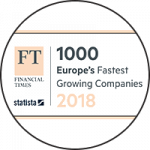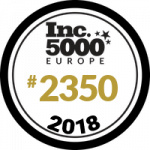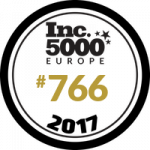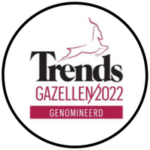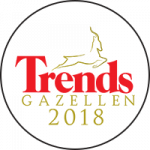Summary In the contemporary business environment, digital procurement is becoming increasingly popular and sought after by businesses around the world. The relationships …
How can businesses revolutionise processes with agile procurement consulting for optimal results?
What is agile procurement consulting?
Agile procurement consulting is a modern approach undertaken by businesses that has gained traction since the pandemic. It takes a strategic and collaborative approach and applies agile principles and methodologies to the procurement process within an organisation.
This involves the integration of agile practices into traditional procurement strategies to enhance the flexibility, responsiveness, and efficiency of procurement processes. The agile approach aims to modernise and optimise procurement functions, making them more adaptable, collaborative, and aligned with the dynamic needs of the organisation.
How are businesses incorporating agility in procurement consulting?
Businesses are redefining their processes and achieving optimal results through the strategic implementation of agile procurement consulting. This revolutionary approach focuses on dynamic adaptation, fostering efficiency, and ensuring the attainment of key objectives.
Here’s how businesses are navigating this transformative journey:

Strategic agility
Agile procurement consulting empowers businesses to embrace and enforce strategic agility. By fostering a mindset of adaptability and responsiveness, Organisations can swiftly adjust their procurement strategies to align with evolving market conditions and business priorities. This positions and shifts businesses towards gaining a competitive advantage and unique selling propositions.

Collaborative synergy
Businesses are breaking down silos and fostering cross-functional collaboration, which tends to result in a closely-knit business culture with stakeholders. This ensures that procurement processes seamlessly integrate across multiple departments, leading to enhanced communication, efficiency, accountability and overall business function, edging up processes and objective achievement.

Data-driven decision-making
Leveraging data is a cornerstone of agile consulting for procurement. Businesses are utilising advanced analytics and real-time insights to make informed decisions. This data-driven approach not only streamlines procurement processes but also enables organisations to identify cost-saving opportunities, optimise resource allocation and prompt firms towards business transformation.

Continuous improvement culture
Agile procurement instils a culture for continuous process improvement. Businesses are adopting methodologies, regularly evaluating, constantly improving and refining their procurement processes for efficiency, accountability and accuracy. This approach ensures that organisations stay ahead of the curve, incorporating lessons learned and best practices into their business operations.

Risk mitigation strategies
Proactive risk management is integral to agile procurement functions. Businesses are developing and adopting robust risk mitigation strategies to address uncertainties in the supply chain, regulatory landscape, and market fluctuations. This forward-looking approach addresses risks promptly, enhances resilience and minimises the impact of supply-led disruptions and navigation of uncertainties.

Technology integration
Agile procurement leverages technology to streamline processes and enhance efficiency. In fact, embracing cutting-edge technologies is a key facet of agile procurement. Businesses are integrating automation, cloud technology, and digital platforms to streamline procurement workflows. This accelerates processes, enhances accuracy and prompts better service delivery.
Agile procurement consulting is causing a paradigm shift in how businesses approach their operational processes. By embracing agility, collaboration, and innovation, organisations are not only optimising their procurement functions but also positioning themselves for sustained success in today’s dynamic business landscape.
Why is agile procurement important today?
Agile procurement is gaining prominence as organisations seek more dynamic and responsive approaches to acquiring goods and services.
Traditional procurement processes often face challenges in adapting to rapidly changing business environments, technological advancements, and evolving market conditions. Agile procurement addresses these issues by introducing planning and execution cycles, allowing organisations to respond quickly to changing requirements.
The collaborative nature of agile procurement, with cross-functional teams working closely, fosters effective communication and ensures a more holistic understanding of procurement needs. This approach emphasises adaptability to change, acknowledging that organisational priorities and external factors may shift over time.
Furthermore, the customer-centric focus of agile procurement ensures that the procurement process aligns closely with the needs and expectations of internal stakeholders and end-users. By actively managing risks and integrating technology, organisations can enhance efficiency, reduce uncertainties, and leverage data for informed decision-making.
The agile mindset cultivated in procurement teams through training encourages a culture of flexibility and innovation. Ultimately, agile procurement seeks to transform traditional procurement models, making them more responsive, collaborative, and adaptable to the dynamic challenges of today’s business landscape.
As organisations recognise the benefits of agility in procurement, this approach becomes a strategic enabler for achieving optimal results and maintaining a competitive edge in the marketplace.
Embark on a journey towards procurement excellence with Kronos Group
Experience a seamless transition into a new era of procurement optimisation and transformation with Kronos Group, a renowned leader in procurement consulting services. We specialise in driving digital transformation and fostering technology adoption to empower businesses.
Our core focus is on analysing, recommending, and implementing optimised digital strategies, processes, and technologies to unlock the full potential of your procurement operations. We excel in navigating the intricacies of procurement management, dedicated to streamlining your operations and achieving predefined objectives.
Our tailored suite of skills is designed to elevate your procurement processes, propelling your organisation towards transformative change in the dynamic landscape of contemporary business.
Connect with us today and join us on a journey to enhance, transform, and innovate within your organisation.
Fighting the effects of inflation with sourcing and procurement consultants
Stay up-to-date on the latest insights on procurement, finance, and project management.
Summary Strategic procurement has become a necessity in today’s business world and organisations try to remain competitive. Having the right procurement strategies …
Summary The world of consulting has been undergoing a massive transformation and management consulting jobs are experiencing the impacts of these changes. …
FAQ
Originating from software development, agile methodologies emphasise flexibility, collaboration, and iterative development. When adapted to procurement, these principles aim to make the procurement process more adaptive, responsive, and efficient.
Traditional procurement follows a structured and linear process while agile procurement emphasises flexibility, collaboration, and adaptability. Agile procurement is particularly well-suited for dynamic environments where change is frequent and responsiveness is a critical success factor.
Agility in procurement refers to the ability of an organisation to be flexible, adaptive and responsive in its procurement processes, which involves adopting a mindset and approach that allows the procurement function to quickly and effectively navigate changes in market conditions, business priorities and external factors.

